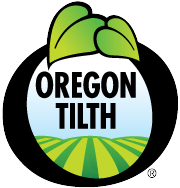OVERVIEW
Water is our number one natural resource. Without access to clean water for drinking or use in farming, we cannot survive. And in the face of more drought and higher temperatures, we’re already seeing how water availability is a crisis on our doorstep.
The Challenge
In a national survey conducted by the U.S. Environmental Protection Agency, data showed that agriculture was the leading source of pollution of our rivers and lakes.
Certain farming practices are major threats to water quality, with little to no regulatory oversight to control or capture problems before it’s too late. The U.S. Geological Survey’s (USGS) National Water-Quality Assessment revealed that more than 90% of water from all streams sampled contained at least one pesticide, typically common to agricultural use. Furthermore, runoff issues also contaminate waterways from excessive nitrogen leeching from synthetic fertilizer overuse. In August 2014 in Toledo, Ohio more than 500,000 people lost drinking water for days.
In addition to quality, water scarcity is becoming a headlining social, political and cultural issue with shortages due to prolonged drought. With agriculture using as much as 34 percent of our nation’s available freshwater, it’s clear that the sector needs to lead the way on water-use efficiency and conservation.
The Opportunity
Certified organic farms follow standardized practices that help protect water quality and increase water retention.
The best method to keep water clean of toxins is to never introduce them in the first place. Certified organic operations work to minimize toxin releases. In livestock agriculture, absolutely no use of antibiotics – along with careful manure management techniques – help keep waterways free of contamination. Soil building techniques such as cover crops, pasture management and composting add significant amounts of organic matter and fertility to farmland. It’s uncomplicated; healthier soil means less harmful materials in our water supplies.
In addition to organic certification standards, Oregon Tilth has developed a partnership with Salmon Safe to restore watersheds and protect aquatic habitats near farmland. Participating clients follow regulations to manage riparian areas alongside waterways, improve irrigation practices and lessen soil erosion into streams. Our collaboration with Salmon Safe and other conservation partners has enabled Oregon Tilth to be a leading resource to farmers concerned about quality and conservation of water as well as native wildlife.
But we know that a lot of work remains to reform agriculture’s relationship with water in order to preserve and protect its health for years to come.
